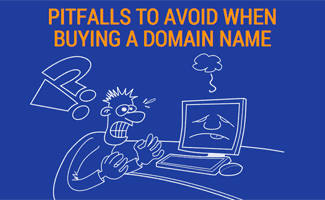When you purchase through links on our site, we may earn a commission. Here’s how it works.

This is also a long disputed discussion in the search marketing community. Technically hyphens are recognized as a separator (or space), so they should be used in instances where search engines may not correctly discriminate your keywords. For example, expertsexchange.com – is that experts-exchange or expert-sex-change? In all other instances hyphens are unnecessary, as search engines will correctly parse out the keywords. We are finding that keywords in your domain name play a larger role than we expected with Google, especially for low competition keyword phrases. Either way, you should focus on the branding aspect of your name – i.e. stick with one that is short, simple, and easy to remember, as that will pay off most with your visitors in the long run. Remember – cater to your visitor first, not the search engine. Read our article on Keywords in Your Domain Name for details.
Word of Mouth Marketing
There is one undisputed argument for non-hyphenated domains. And that is when you are marketing your domain name by word of mouth. It is much easier to tell someone to go to “we rock your web dot com” than it is to try to get them to remember “we hyphen rock hyphen your hyphen web dot com” Chances are they will forget the hyphens, insert them in the wrong place, or not know what a hyphen is to begin with. To avoid this confusion, it is recommended to either begin with the non-hyphenated domain, or have the hyphenated domain redirect to your non-hyphenated domain. That being said, if you market your non-hyphenated domain and people link to it, your hyphenated domain will lose out on that link juice.
The Myth of “Hyphen Dropoffs”
Many people have reported that they are seeing drop-offs in rankings of their hyphenated domains in Google SERPs (Search Engine Results Pages). Upon further inspection, however, the drop-offs are also being realized by hyphenated domains. The bottom line is that Google is constantly updating their search algorithms, so your page rankings will vary day-to-day, and often pages will go up and down in ranking or (worst case) be dropped from the index. But this has nothing to do with hyphens. Just imagine the risk Google, or any search engine for that matter, would run if they penalized hyphenated domain names that ended up being high quality sites. A simple, crude filter such as this has nothing to do with distinguishing quality content – and the complex Google algorithms have been refined to a development point that is far beyond this.
The Myth of “Non-Hyphenated Search Results”
Others argue that most top results reveal non-hyphenated domains and therefore non-hyphenated domains are better. Of course the results are going to reveal more non-hyphenated domains. Why? Because people try and register non-hyphenated domains first, because as mentioned, they are easier to market and brand. So the majority of sites use these – hence the majority of results contain non-hyphenated domains. The simple fact that the SERPs also contain several quality multi-hyphenated domains (domains with multiple hyphens) is evidence that these domains are not being penalized. The bottom line is quality – sites with quality content organized in quality fashion that are marketed well and are linked to by other high quality sites in the same industry should rank well over time, regardless of domain name technicalities.
The Myth of “Non-Hyphenated Popularity”
There are those that believe that people are less likely to click on hyphenated domains because of their association with spammy sites, and because long-lasting traditional domain names tend to be hyphen free. We’re not aware of studies having been conducted on the influence this has on current search patterns (please comment below if you are), but if this is an issue for you we suggest you go with a non-hyphenated domain name if possible.
The Fact of “Hyphenated Spam Domains”
Others will point out that multi-hyphen domains are rapidly disappearing from SERPs. This is no doubt the case – but it’s because spammers tend to use keyword loaded domains separated by hyphens, not because Google is specifically targeting hyphenated domain names.
Hyphens or Underscores?
If you are in a situation where you must use hyphens to differentiate keywords correctly (as in the above example), then it is important that you use hyphens, and not underscores. While Yahoo and MSN may correctly interpret underscores as hyphens, the predominant search engine, Google, does not (ie. it reveals different results for hyphenated and underscore searches, treating the underscore as a character instead of a space).
Wondering Which Domain Name To Get?
First off, we recommend Namecheap for your domain registration needs. They offer solid prices and back it with great customer service and functionality. We are very familiar with their platform so can help out if you run into troubles. I would highly appreciate it if you could use this link when registering your domain name (we receive a small commission) so I can continue providing this free domain consultation service (see comments below – I’m answering several new comments each week, which takes up valuable time and research). Thanks and good luck!
Do you have a short list of domains for yourself or your business and you’re having trouble deciding which to go with? Feel free to ask us in the comments below, we’ll be glad to give our opinion. Important – we ask that you register your domain names (on Namecheap, our registrar of choice) before posting them in the comments, to prevent “domain squatters” reading this from “stealing” your domain names and then trying to sell them back to you for a higher price.
Tagged With: Keywords

